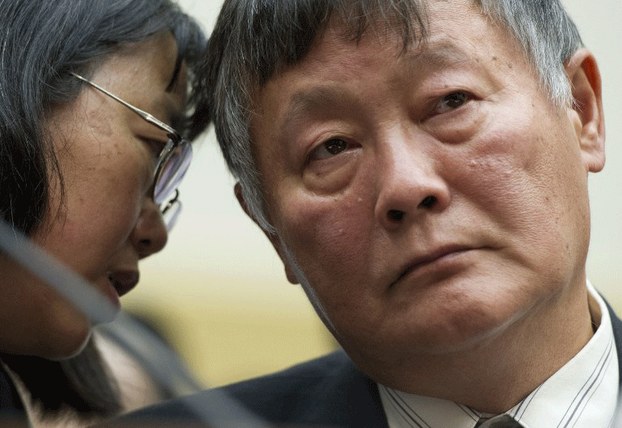




When we look back at the painful lessons of the Cultural Revolution, most of the talk revolves around a small minority of people who were tortured and mistreated by a majority with the support of the [ruling] Chinese Communist Party.
But this was, and remains today, part of Mao Zedong's great strategy. Some have said that Mao turned military strategy into a personal philosophy. I think they're right.
According to the thinking that came from Mao and became prevalent across the whole party, those who were being 'struggled' against were the enemy. Fault-lines in society were exploited to ensure a victory of a minority over the majority.
The Communist Party, a small faction of people, was able to divide up the rest of society into carefully defined categories.
This strategy rested upon a basic premise ... that it was necessary to isolate certain groups from the broad masses of the people. That's why we saw a lot of rationalization in the form of the theory of class struggle, or the correct ideological line.
The categories eventually numbered more than 20 ... that basically covered pretty much the whole population.
They gave officials a convenient excuse. If they wanted to go after someone, all they had to do was stick one of these labels on them.
Factional strife
The whole point of class struggle rhetoric was to divide people into different interest groups, and to create strife between them, which then escalated to enmity.
Then, faction was set against faction, only to switch to battling a different faction a few days later. The revolutionary factions of the Cultural Revolution got their sense of self-righteousness from acting under the aegis of Mao Zedong.
Eventually, Chairman Mao's faction was overthrown by a different faction that also flew Mao's banner, and they all went off to jail.
The entire political life of the Chinese Communist Party, not just in this particular period, can be seen as an attempt to divide the population into different interest groups, and then set them against each other in class struggle.
Anyone with a different opinion can easily be set up as an enemy; the more narrowly defined the categories, the better. It's an old communist trick.
First, you deal with the most dangerous bunch, then you go after the less dangerous groups. When you're done with all of those groups, they make one very large group.
A recent example is their handling of the Occupy Central pro-democracy movement in Hong Kong. The pan-democrats in Hong Kong were a key target for Beijing, and finding and exploiting divisions within their camp became the main focus for mainland spies, if not the only one.
This yielded results pretty quickly.
Focal point for struggle
The annual candlelight vigil in Victoria Park to commemorate the Tiananmen Square massacre [of 1989] is an important event that brings people together to express their point of view.
It doesn't just commemorate the martyrs who died in the crackdown; it is a focal point for Hong Kong's own struggle for democracy.
It could be said that without the unity created by these vigils, the Occupy movement would never have got so large. The vigils were traditionally a time to put aside differences and unite; they were a fixture in the fight for freedom.
Destroy that tradition, and the unity needed for the struggle for democracy is lost, a major coup for those who wanted to create division [now that the vigils have divided into two camps].
The youth of Hong Kong have long been angry about the misdeeds of some of the pan-democratic political elders. In particular, they seem impotent, and they are particularly angry about their sitting on the fence when it comes to the Chinese Communist Party.
Young people also lack experience, and still have illusions about the Communist Party. They think that they can avoid its violence, and work toward independence like Taiwan.
Escaping tyranny
I am all in favor of independence for Hong Kong, if it could ever happen. Indeed, I'm in favor of independence for each of China's provinces, as a way of escaping the tyranny of Beijing. That can only be a good thing.
But in political movements, as in life, we can't rely on our imaginations to guide us. We must face up to reality.
Ideals are one thing. The important part is what we do to set about achieving them.
Translated by Luisetta Mudie.
Wei Jingsheng is a U.S.-based veteran democracy activist who has served a total of 18 years in Chinese prisons for "counterrevolutionary" activities.